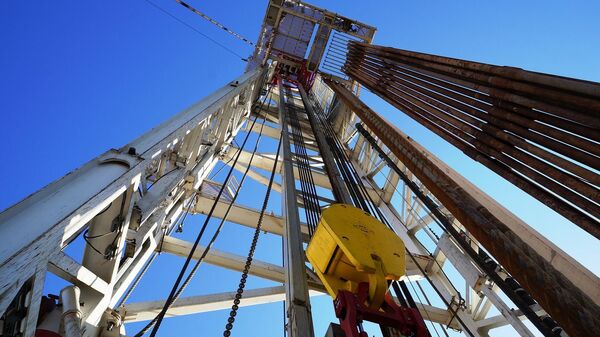On Tuesday Asian Pacific markets rebounded after a steep slide in oil prices on Monday. On 9 March stocks were in free fall on trading floors right across Asia, including China, Japan, Hong Kong, Singapore, Taiwan, South Korea, Thailand, Australia and New Zealand.
Global oil demand is down due to a cutback in production caused by the novel coronavirus. At a Friday meeting of the OPEC + format in Vienna, Saudi Arabia proposed to further reduce crude production by 1.5 million barrels per day until the end of 2020. But Russia insisted on maintaining current volumes. As a result, OPEC+ member states will have no obligations to limit oil output starting from 1 April.
As crude prices plunged 30%, the steepest fall since 1991 on Monday, Goldman Sachs. warned that Brent may fall as low as $20 a barrel. However, crude prices partially bounced back the next day after an announcement by Donald Trump about economic relief measures to fight COVID-19 and news that new coronavirus cases have reduced in Asia.
Markets Saw Record Setting Declines
Oil prices will go up again predicts Pan Changwei, the director of the Centre for Russia and Central Asia at the China University of Petroleum.
"I think that in the future, oil prices will not only return to their previous, pre-crisis, level, but will mount even higher", he says, stressing that the number one priority is to nix the novel coronavirus worldwide which will help to restore global supply chains and economic activity.
According to Pan, it is not clear whether China will benefit from falling oil prices. He foresees a further economic slowdown in China and across the world, stressing that the People Republic's current need in crude is not that large as it has managed to store a sufficient stock of hydrocarbons in its storage facilities.
"For these reasons, China will react indifferently to current developments in the global oil market", he opines.
Meanwhile, Riyadh's decision to ramp up production to nearly 12 million barrels a day in April has prompted fears of further sell offs. On Monday, the largest losses were suffered by holders of assets related to the oil sector, metals, and high technology. In particular, the prices of shares of Petrochina – one of the largest Chinese oil and gas companies – China National Offshore Oil Corporation (CNOOC), and Sinopec dropped sharply on the Hong Kong Stock Exchange.
However, Xu Qinghua, director of the Center for World Energy Strategy of China’s People’s University, says that the demand for Chinese energy companies' shares is by no means the main criterion determining its role in the market.
"The cost price of Petrochina shares has long been far from being perfect", she says. "And, in my opinion, this is connected not only and not so much with oil prices. The main reason is that it is a state-owned enterprise that accomplishes a strategic task of providing the country with energy resources. For the state, the main criterion for the effectiveness of its activities is not only profitability, but also a long-term and stable development. So, in my opinion, at the moment it is much more important for Petrochina to focus on solving strategic government tasks and not on fluctuation of its shares in the market".
The market imbalance backfired on the Saudis as well: on Monday the country's oil giant Aramco saw its shares drop by 10%, according to Gulf News, their lowest level since the company's IPO in December 2019. At the same time, across the ocean, the US Dow Jones Industrial lost more than 2000 points on 9 March - its worst day since the 2008 global financial crisis.
On Tuesday, global stocks at least partially recovered after the record-setting decline with Brent crude trading above $36 per barrel.


